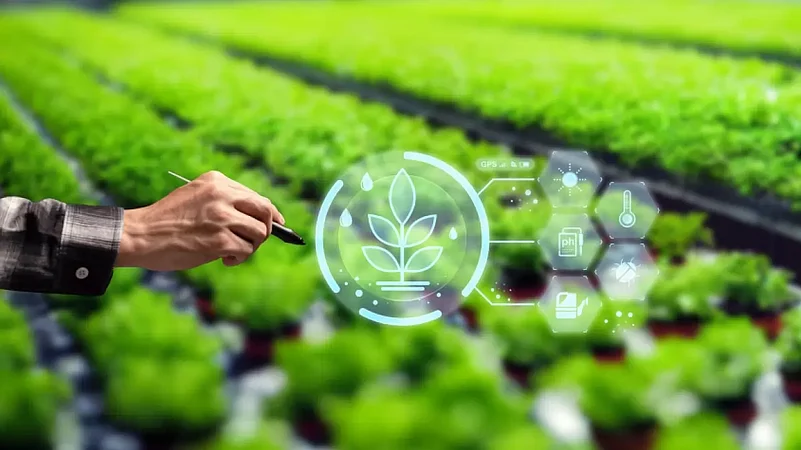A group of students from the Artificial Intelligence College in Kafr El-Sheikh, Egypt, have developed a robot and app that have the potential to revolutionize agriculture in Egypt and beyond. The robot, called the "Agribot," can navigate agricultural terrain, recognize and diagnose fruit diseases, and spray pest-resistant chemicals. The app, called the "Agri-Tracker," can monitor crop status and conditions, and detect crop diseases.
The Agribot is equipped with six legs that allow it to move easily over uneven terrain. It also has a variety of sensors that allow it to detect plants and identify potential problems. If the Agribot detects a plant that is diseased, it can spray it with a pest-resistant chemical. The Agribot can also harvest fruits and vegetables, and sort them by quality.
The Agri-Tracker app allows farmers to monitor their crops from anywhere in the world. The app uses satellite imagery and weather data to track crop growth and development. It also sends alerts if it detects any potential problems. The Agri-Tracker app also allows farmers to control the Agribot remotely.
The Agribot and Agri-Tracker app are still in the development stage, but they have the potential to revolutionize agriculture in Egypt and beyond. The robots and app could help farmers save time and money, while also improving crop yields and quality. They could also help farmers reduce their environmental impact.
Agricultre is a major sector of the Egyptian economy, contributing to about 11% of GDP in 2022. The app, if successful, hasthe potential to improve yeidles, reuce crop losses and make agriculture more sustainable.


























